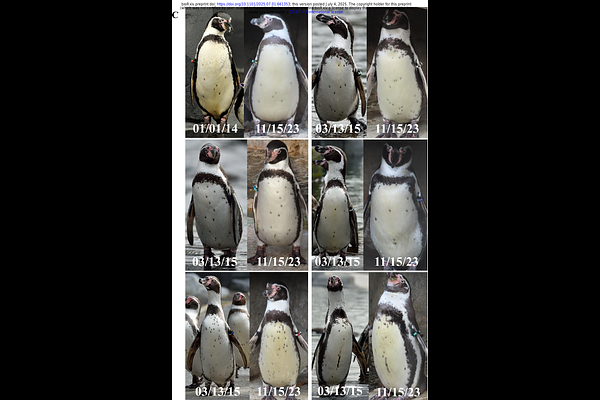Deep learning-based photo-identification for non-invasive monitoring of animal populations: Application to penguins and tortoises

Deep learning-based photo-identification for non-invasive monitoring of animal populations: Application to penguins and tortoises
Durr, N.; Rodriguez-Olmos, M.; Courtecuisse, J.; Gilbert, C.; Laidebeure, S.; Lecu, A.; Nord, A. L.; Pedaci, F.; Whittington, J. D.; Le Maho, Y.; Planas-Bielsa, V.
AbstractWe describe DL-ID, a deep learning-based framework for the individual identification of animals from images with higher accuracy and characteristics that make it more robust in challenging conditions, such as field studies, than widely used algorithms. This is demonstrated through testing with small datasets involving two species that exhibit distinctive morphological features: Humboldt penguins (Spheniscus humboldti Meyen, 1834) and Hermann\'s tortoises (Testudo hermanni Gmelin, 1789). We define a confidence index based on entropy within the model that significantly improves handling of the open set recognition problem, offering a new way to discriminate unknown individuals. DL-ID\'s accuracy of 87%, even with as few as four images per class, contrasts with the usual practice in deep learning of building large datasets to assess performance. The model outperforms traditional photo-identification methods like Wild-ID and I3S Pattern, offering a significant advancement for research and conservation efforts. Its efficiency and adaptability indicate its potential in real-time monitoring, opening new possibilities for wildlife conservation. Instead of designing a complex new deep learning model, we focused on adapting existing methods to address a relevant ecological problem. Our approach effectively tackles issues like limited training data and recognizing new individuals in field studies. Notably, it performs well even with small datasets, making it particularly useful for data-limited ecological research. This makes our approach a valuable step forward in applying deep learning to ecological studies.